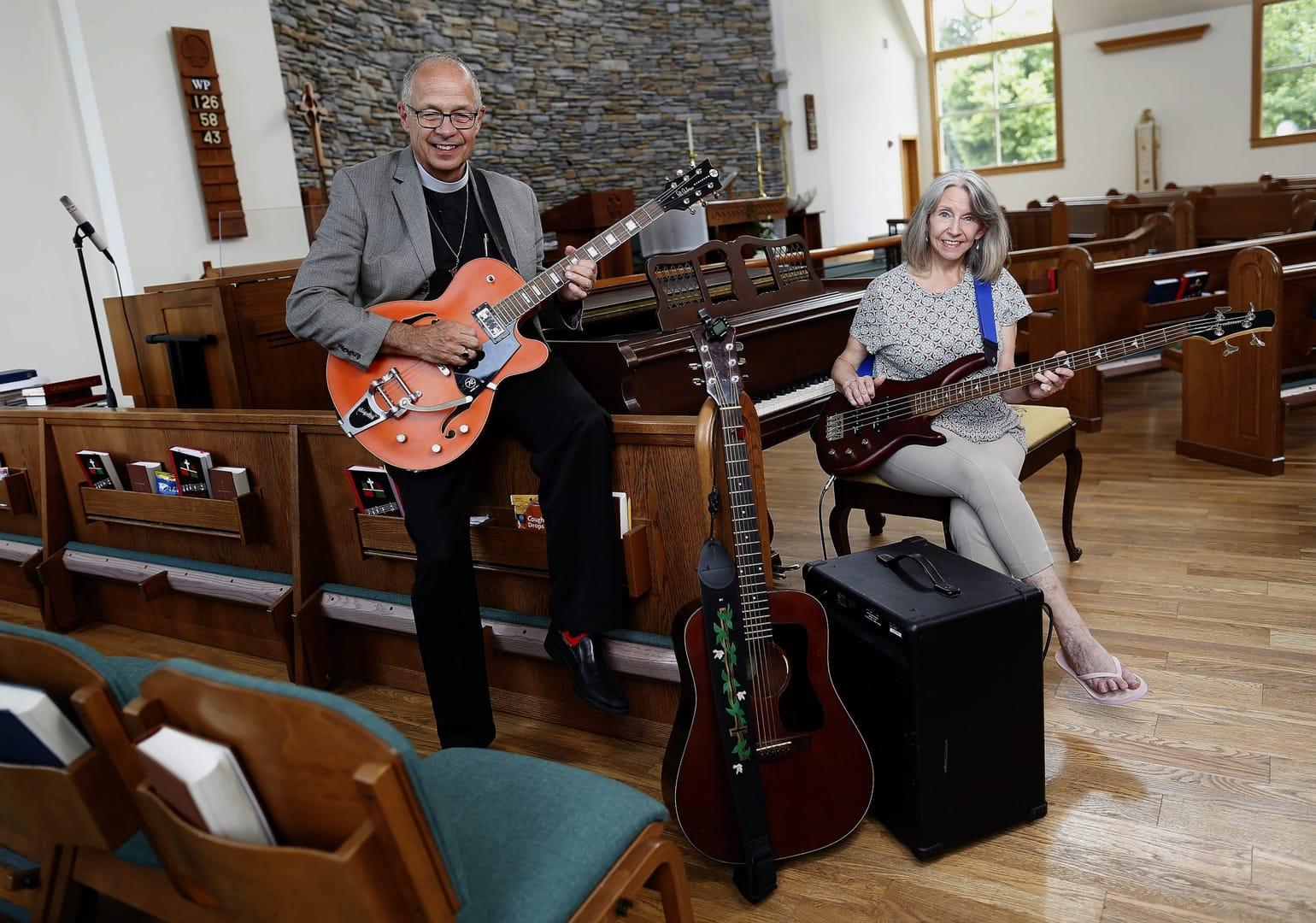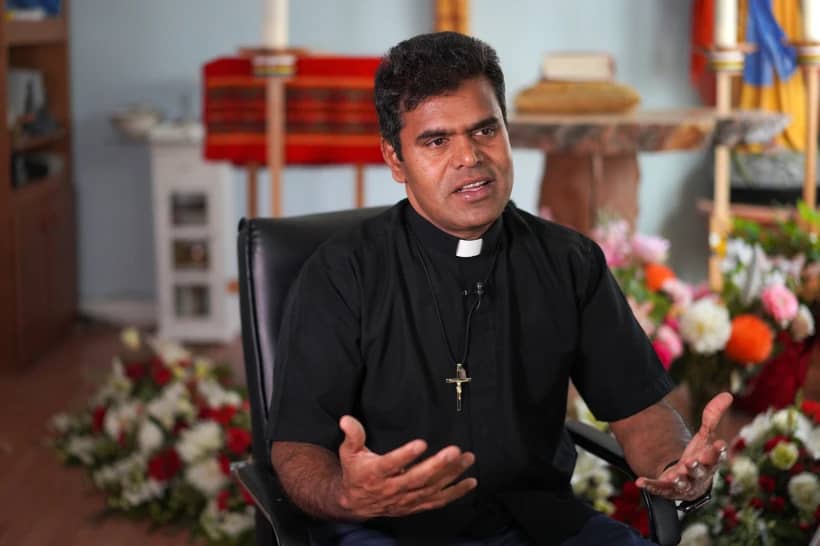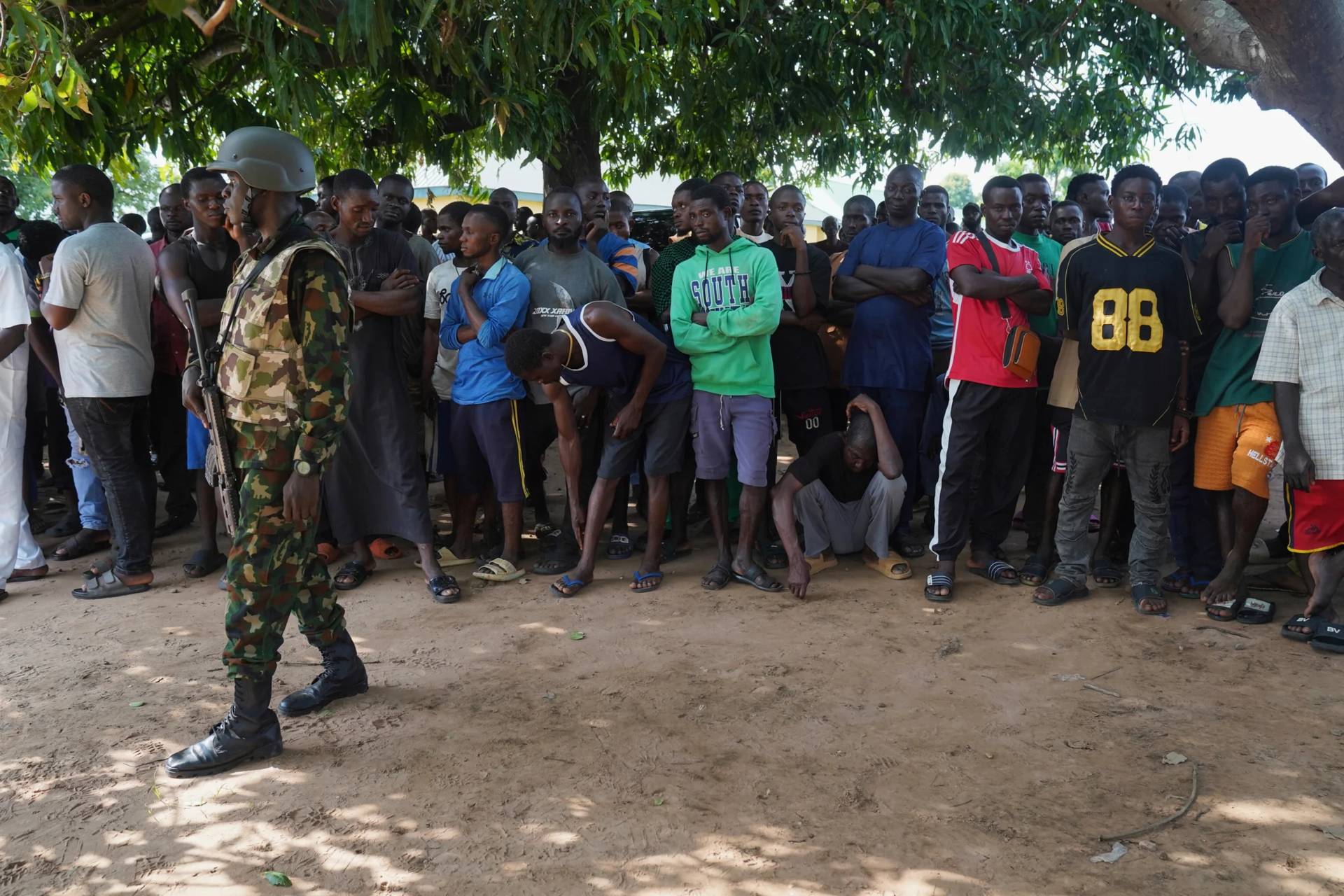COLUMBUS, Ohio — The jaunty sound of a puja bell rings during an offering at the Jain Center of Central Ohio in southern Delaware County.
Birds chirp in the background of a Druid ritual at ComFest in downtown Columbus.
And the rhythmic harmony made by musicians at St. Patrick’s Episcopal Church performing a U2 song flows during worship at the Dublin Irish Festival.
All of these sounds are part of the American Religious Sounds Project, a website and database of audio files from local religious experiences.
The idea is to document the “remarkable diversity” of the local community through audio, which Isaac Weiner, co-director of the project based at Ohio State University, said is a way to “capture the lived experiences of religion.”
“I find sound very evocative of specific places. … You can get the context of the space where religion happens,” said Weiner, associate professor of comparative studies at Ohio State. “It really evokes a strong sense of being in a particular space that I find powerful.”
The project launched online in May. Weiner and others working on it, including co-director Amy DeRogatis, a professor of religious studies at Michigan State University, plan to continue adding audio files — usually short snippets of sound — and photos to the site monthly.
The project is different from others that capture religion because it’s audio instead of images.
Seeing a photo is “a very different experience from listening to what it sounds like for people to have a menorah lighting in a public space,” said Caroline Toy, project manager and a graduate student at Ohio State. “You hear the traffic going by, you hear the sounds of other people going by, and have the sense this is a different experience. You can be surrounded by listening.”
The idea started as a class project Weiner had his students do, beginning in 2014, to get them out of the classroom and off campus and to explore the community around them. He tasked them with becoming amateur field recorders and finding the places where people encounter religion, including places that people may not expect, such as at racetracks, truck stops, rodeos and more.
The website has a wide variety of recordings , including sounds of people voting, protesting and preaching in the streets.
“It’s a really interesting collection,” Weiner said. “It captures particular moments and decisions (the students) have made.”
Many of the students’ recordings became part of the project and are included in the database of sounds.
At some point, they will be joined by the work of students not only in Ohio and Michigan, but from universities across the country as the project expands, Weiner said.
He also hopes to create a traveling exhibit of the project so it can visit museums and community centers around the country.
Beyond his students, Weiner said he hopes the broader society can learn from the database.
“There’s something powerful about inviting people to listen more carefully to each other,” he said. “Our hope is to challenge people to think more broadly about … what religion is, where it is and why it matters how we think about it.”
The goal is also to challenge stereotypes and draw attention to communities or practices that often go unnoticed, Weiner said.
In 2015, the Rev. Stephen Smith, rector at St. Patrick’s Episcopal Church in Dublin, and others with the church were recorded performing songs from a collection called U2charist, which uses U2 songs as hymns, at the Dublin Irish Festival.
The church has been doing that performance, during which Smith plays guitar, for 10 years and were happy to have it recorded and archived on the website.
“One thing we’ve always said in the Episcopal church and some others as well is the person who sings prays twice,” Smith said. “There’s something about singing that changes the way you approach God.”
Crux is dedicated to smart, wired and independent reporting on the Vatican and worldwide Catholic Church. That kind of reporting doesn’t come cheap, and we need your support. You can help Crux by giving a small amount monthly, or with a onetime gift. Please remember, Crux is a for-profit organization, so contributions are not tax-deductible.












